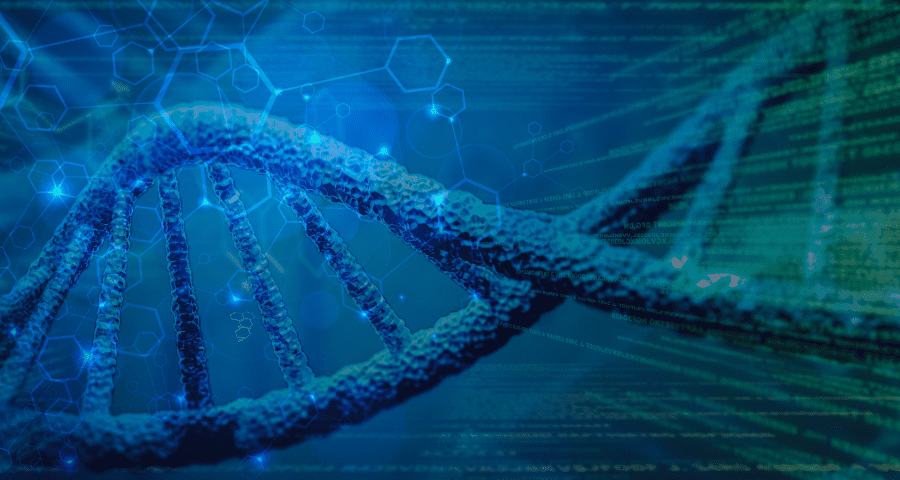
What will be the 10 Most in Demand Life Science Skills in the Next Decade?
By Chris Frew, CEO Workforce Genetics
July 20, 2023
| Workforce Genetics (WGx) is a Corporate Partner who values community just as much as we do. They are a strategic recruiting solutions firm supporting growth-staged companies in the biopharma and life sciences industries. Enjoy the read and be sure to get in touch or work with us if you have an idea or perspective you’d like to share. |
Jobs are changing, fast. Are your skills keeping up? The pace of change is increasing in all of the highly technical fields, especially in the life sciences industry which is ground zero for rapidly emerging new technologies and research techniques.
If you are in the life sciences field, keeping up with the skills that are growing in demand is crucial for your career as a research scientist. Some of these skills can be developed on the job, but many of them require specialized instrumentation and specialized instruction from industry experts. Fortunately, there are programs that are specifically designed to help keep scientists on the cutting edge of their field.
Programs like those offered by Bio-Trac offer hands-on workshops that cover the latest advanced research techniques and methodologies. Bio-Trac workshops are also run by industry experts and practitioners from the field, so you know that you’re getting the most up-to-date and cutting-edge new skills and training. The company has been around for more than two decades and has trained over 18,000 scientists.
BioBuzz decided to dive into the top 10 life science jobs and skills that we believe will be in greatest demand over the next decade to help you plan your career for the next 10 years.
Here are the top 10 life science skills we identified:
- AI in Biology. Using artificial intelligence, machine learning, and deep learning will be widely adopted to analyze data and predict outcomes or targets in areas such as medical diagnosis, protein structure prediction, biomarker identification, clinical patient data analysis, and genomic sequencing data.
- Bioprocess engineering involves using biological materials to create commercial products and finds applications in industries such as pharmaceuticals, food production, sewage treatment, and biofuels. Bioprocessing continues to be a critical component in the development and production of new therapies, both in traditional biologics as well as in cell and gene therapies.
- Cell and Genetic Engineering is the process of adding, deleting, or modifying genetic sequences in living cells and/or the manipulation of an organism’s genes using the methods of modern molecular and cell biology, such as recombinant DNA techniques, CRISPR CAS-9, or other techniques such as flow cytometry.
- Quantum biology explores the use of quantum mechanics and theoretical chemistry in biology and medicine with the potential for faster predictions of protein interactions and other biological processes using quantum computers.
- Biomedical Engineering combines engineering principles with medical sciences to contribute to the development of new diagnostics, medical technologies, medical devices, and other scientific instrumentation increasingly.
- Microbiology will continue to have growing applications in disease causation, food science, medicine, and environmental and ecological sciences. With increasing antibiotic resistance being a major concern, some predict increased use of Bacteriophages (BPs) therapies which use viruses that can infect and kill bacteria without any adverse effect on human or animal cells.
- Computational biology or bioinformatics combines information technology and molecular biology, with applications in genomics, proteomics, pharmacy, chemistry, and database management. Next-generation sequencing (NGS) is a technology for determining the sequence of DNA or RNA to study genetic variation associated with diseases or other biological phenomena using computational biology to analyze the results.
- Epidemiology is emphasized as a crucial field for the future to understand disease outbreaks, their causes, and symptoms, and developing standard operating procedures for managing future outbreaks. As the world continues to be more interconnected, epidemiology is a critical science to preventing future pandemics and outbreaks.
- Molecular and cell biology are fundamental areas that contribute to industrial, medical, and agricultural fields, particularly in genetic engineering and biotechnology.
- Drug discovery and development professionals manage complex processes that require specialists in screening, optimization, design, and clinical trials to identify potential medicinal drugs for specific diseases. This requires not only strong scientific skills but also a thorough understanding of regulatory pathways and cGMPs.
If you want to continue to develop your skills to be ready for the next 10 years, check out Bio-Trac’s lineup of courses and workshops that are available in person at their advanced training labs located in Montgomery County Maryland at Montgomery College.
- Flow Cytometry: Principles, Methods and Applications
- Multiplex Immunofluorescence in Immune Oncology, Workshop & Symposium
- Multiplex Immunofluorescence in Immune Oncology, Symposium Only
- Next Generation Sequencing (NGS) Introduction
- “NEW” 3D Cell Culturing
- R for Research Scientists
- Gene Editing with CRISPR
- Single Cell RNA-Seq
- Flow Cytometry: Principles, Methods and Applications
- Advanced Gene Editing with CRISPR
Follow BioBuzz for continued insights into the careers and trends in the life science industry.
- About the Author
- Latest Posts
Over the past 11 years, Chris has grown BioBuzz into a respected brand that is recognized for its community building, networking events and news stories about the local biotech industry. In addition, he runs a Recruiting and Marketing Agency that helps companies attract top talent through a blended model that combines employer branding and marketing services together with a high powered recruiting solution.





